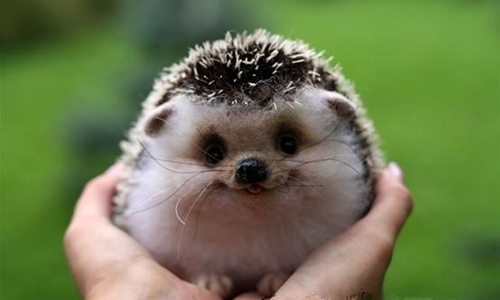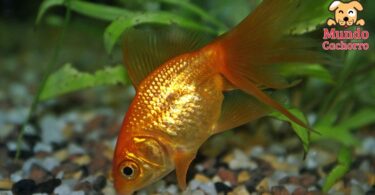The common hedgehog can be an excellent pet, but since it is a relatively new pet, it is a good idea to thoroughly research the care it needs.
A home, the first step in caring for your hedgehog
Caring for your hedgehog starts with finding him a nice place to call his own where he can rest safely while you are away from home.
Hedgehogs need a large, solid-floored, well-leveled and ventilated cage, although care must be taken to ensure that the room temperature does not drop too low. If this happens, cover your hedgehog with a blanket until the room temperature is comfortable again. The hedgehog will be fine if the temperature is maintained between 22ºC and 27ºC.
Then the inside of the cage must be furnished. The hedgehog should have a bed, a place to hide, a wheel for exercise and a tray for droppings.
The excrement tray should be cleaned daily. It is also advisable to clean the rest of the cage daily, but it is not very serious if we miss a day and our hedgehog has a good aim with the excrement tray.
Food and beverages
The other extremely important facet of hedgehog care is feeding.
The first thing to keep in mind is that hedgehogs are swallowers by nature and have a tendency to put on weight. So it is not a question of starvation, but it is important to make sure that he does not eat just anything and that his diet is balanced.
Hedgehogs are mainly insectivores, but they will also like it if we give them fruits, vegetables, eggs or meat.
To start with you can give him high quality cat kibble that you can supplement with chicken or salmon pieces, fruit pieces, cooked eggs and insects.
The easiest insects to obtain will be crickets and mealworms. Catching insects anywhere can be a risk, because they may contain pesticides or infect our hedgehog with parasites.
To acquire live, nutritious and quality insects, it is advisable to visit a specialist distributor.
Hedgehogs need the stimulation provided by having live prey and hunting them, hence the importance of insects that are alive and able to move.
The activity period of these animals begins at dusk, as they are nocturnal animals. So, if possible, it is advisable to feed them around this time.
Source: martinfreeman-thehedgehog.tumblr.com








